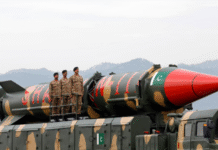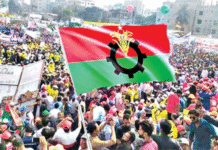By Mohammad Badrul Ahsan
Third time in a row, after Chittagong, after Narayangonj, Comilla has proven it all over again. All these three municipal elections have proven for as many times that when people don’t like something, they can push back. In all three constituencies, notoriety of high profile candidates, all of them having the same bad reputation in common other than their party affiliation, led their voters to rebuff them. A hat-trick of good news, it has been tested three times lately that democracy in this country isn’t dead.
Instead, it’s still breathing inside our political system. People are still capable of making their choice. They can still reject candidates and eject governments. They don’t necessarily vote by rote. They can still exercise precision in their decision. They can still transform outrage into courage. If the herd mentality is their weakness, it’s also their proven strength.
All the more reason why the Comilla election has brought us one step closer to hope. Those who often wonder whether the fragile plant of democracy can survive in this arid soil should have a second thought, because people still matter when push comes to shove. The Lincolnian dictum of democracy still works in this country. We have the government of the people, by the people and for the people. If people may not get the government they want, they also may not want the government they get.
If anything, democracy shouted back in the last three municipal elections. In Chittagong, the voters chose a low-key BNP candidate in 2010 against a diehard AL juggernaut, the incumbent mayor who was elected three times before. As a matter of fact, the BNP man believably was an AL sympathiser previously. He switched his loyalty and won a landslide.
In Narayanganj, people voted for a candidate who was dumped by her party, and she won by a huge margin. The voters wanted her to win as passionately as they wanted her opponent to lose. A similar thing happened in Comilla this month, where a rebel candidate defeated a ruling party stalwart by twice as many votes.
Who actually won those elections is a million dollar question. If AL has lost, did BNP win? Did people vote for the candidate, or did they vote for the party? It is clear that people have voted against the ruling party. Does that mean they have voted for BNP?
It’s hard to tell whether a rebel candidate would have won in Chittagong, but that election surely weighed somewhere between anti-incumbency sentiments and BNP popularity. In Narayanganj, where the rebel AL candidate won, the BNP candidate would have lost by all means. In Comilla, another BNP man contesting on the party ticket didn’t stand a chance to win.
That tells us that people no longer like being caught in a vise between the two political parties. Two out of three times they went for candidates who were distanced from their political settings. In Chittagong, they went for a subliminally political man, who was on the cusp of change.
Brazilian lyricist and novelist Paulo Coelho says that everything that happens once can never happen again, but everything that happens twice will surely happen a third time. It has already happened three times that the voters have voted against the ruling party. It has also happened all three times that the voters have sent a clear message against corruption and violence and in favour of clean image. They have also said it loud and clear by a whopping margin of their votes that they have not voted for the political parties but for the candidates.
Those who can hear, democracy has shouted back. Three times already people have tried to say that they want to take their country back. They have acted wisely, they have voted precisely and they have firmly said no to the godfathers and their goons. Once burned, they are twice warned. The proof of the pudding is in the eating. Since 1971, people haven’t elected either of the two political parties to two contiguous terms in office.
But never before has it happened that candidates who lost their party blessings got such overwhelming support from the people. If it has happened this time, it has its reasons. In the past, people had alternated one political party with another because they didn’t have a choice. Every election time they had to pick one of the two political parties, and they picked the lesser of the two evils.
Now they want to break out of that frame. More than a party and more than a candidate, the voters in the last three elections have voted for change. People are seeking a new equilibrium with their government. Democracy isn’t dead, politicians. Shape up or shape out, it has been breathing down your neck.
(The writer is Editor of Weekly First News Magazine and an opinion writer for The Daily Star.)
Source: The Daily Star









